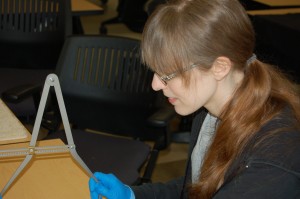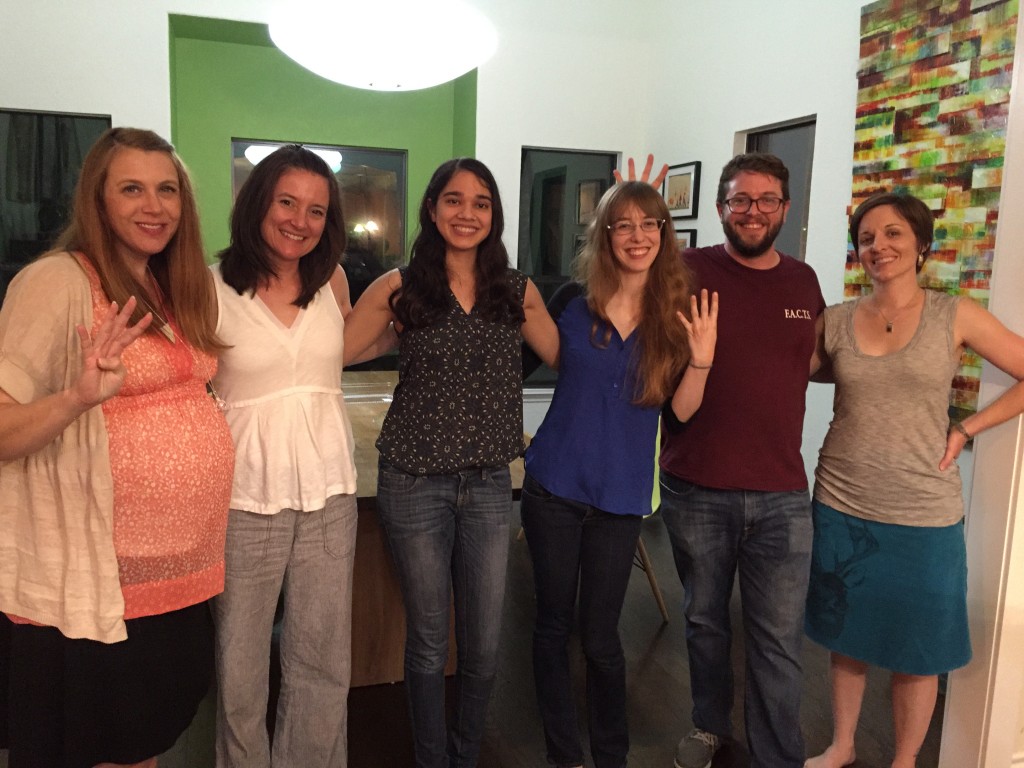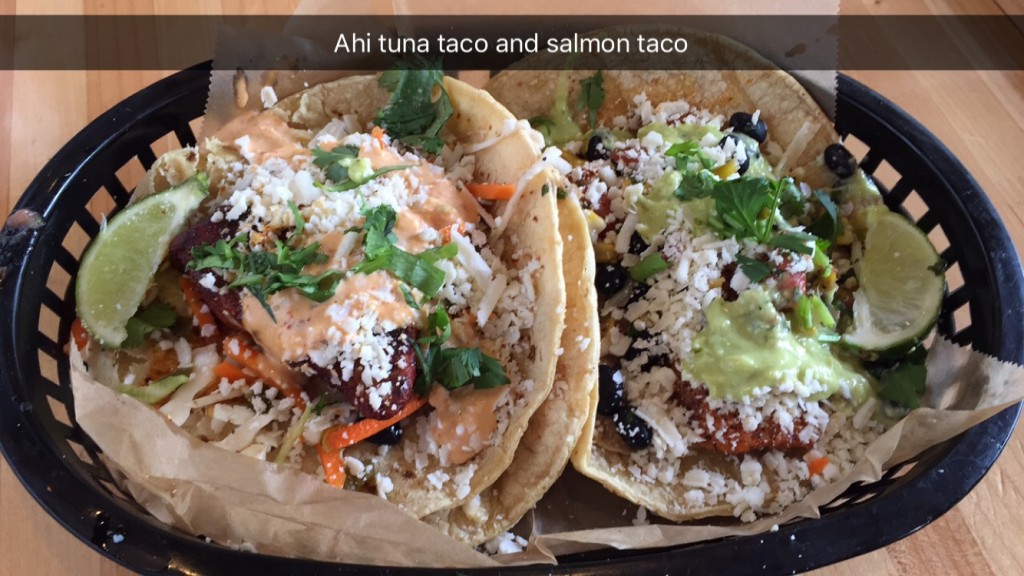Helen: Today our team participated in Missing in Harris County day. This was a really exciting opportunity for me as I’m used to being objective and distant from the families I want to help. We arrived early this morning to help set-up for the event, and then began to prepare for our respective duties. Originally Amanda and I were designated as greeters, but since there were so many volunteers, we ended up helping those who were conducting interviews for intake. My computer became the central hub for all intake and consent forms, photos, and documents from the event today. Once an interview was completed, I would receive their intake forms and any other documents that needed to be scanned. Amanda would then scan the documents and I would create a folder with the missing individual’s name to hold all of the items.
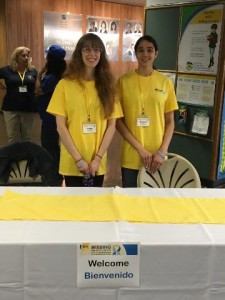
While families were going through the welcome orientation and first starting their interviews, I worried that I wasn’t contributing enough to the event, as I had nothing to do but wait. However, after an hour or two, I was constantly uploading scanned documents, saving files, and trying to keep it all organized without time for a break. At the end of the day, I combined all of the individual’s folders into one and handed them off to Ryan Strand. At first I was nervous I wasn’t helping enough, but by the end of the day I felt like I had made the interviewer’s jobs much easier by being a central location for them to bring their forms, so that they could better attend to their families. Having the opportunity to work with these families reminded me of why I’m so passionate about helping these people find their loved ones. I am really thankful that we got to help today, and I hope that the information gained from this event will help find and identify more missing individuals.
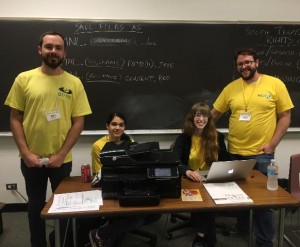
Amanda: My role at Missing in Harris County Day was assisting Helen in organizing the intake files. I handled documents, pictures, and consent forms that needed to be scanned and added to the intake files. I stayed mostly in my one little area of the room scanning papers, but everywhere else around me was an explosion of noise and movement. There were families talking to the intake volunteers, different organization representatives were walking around and helping out, documents were changing hands, and kids were running around. It was slow in the beginning, but then it picked up and it was non-stop work. I didn’t have an important job, but I was glad that I could be useful in some way.
The best and most rewarding part of my day was the kids. Several of the families that came in to report their missing family members brought their children with them. Kids are magic, they can take a tense and emotional moment and make you smile and laugh. There were two little kids, a brother and a sister, that got bored during the intake process and came over to see what I was doing. At the time, my work was slowing down and I decided to help keep them occupied. I taught them how to use the scanner, which they found endlessly entertaining. They were adorable and full of energy. We had a lot of fun and they made so many people in the room smile. I guess this was another job I did. Keeping kids occupied, so that their other family members could do the intake without having to worry about keeping an eye on them. I’m glad I got a chance to participate in this event. Hopefully, the information collected today will help reunite families with their missing loved ones.

